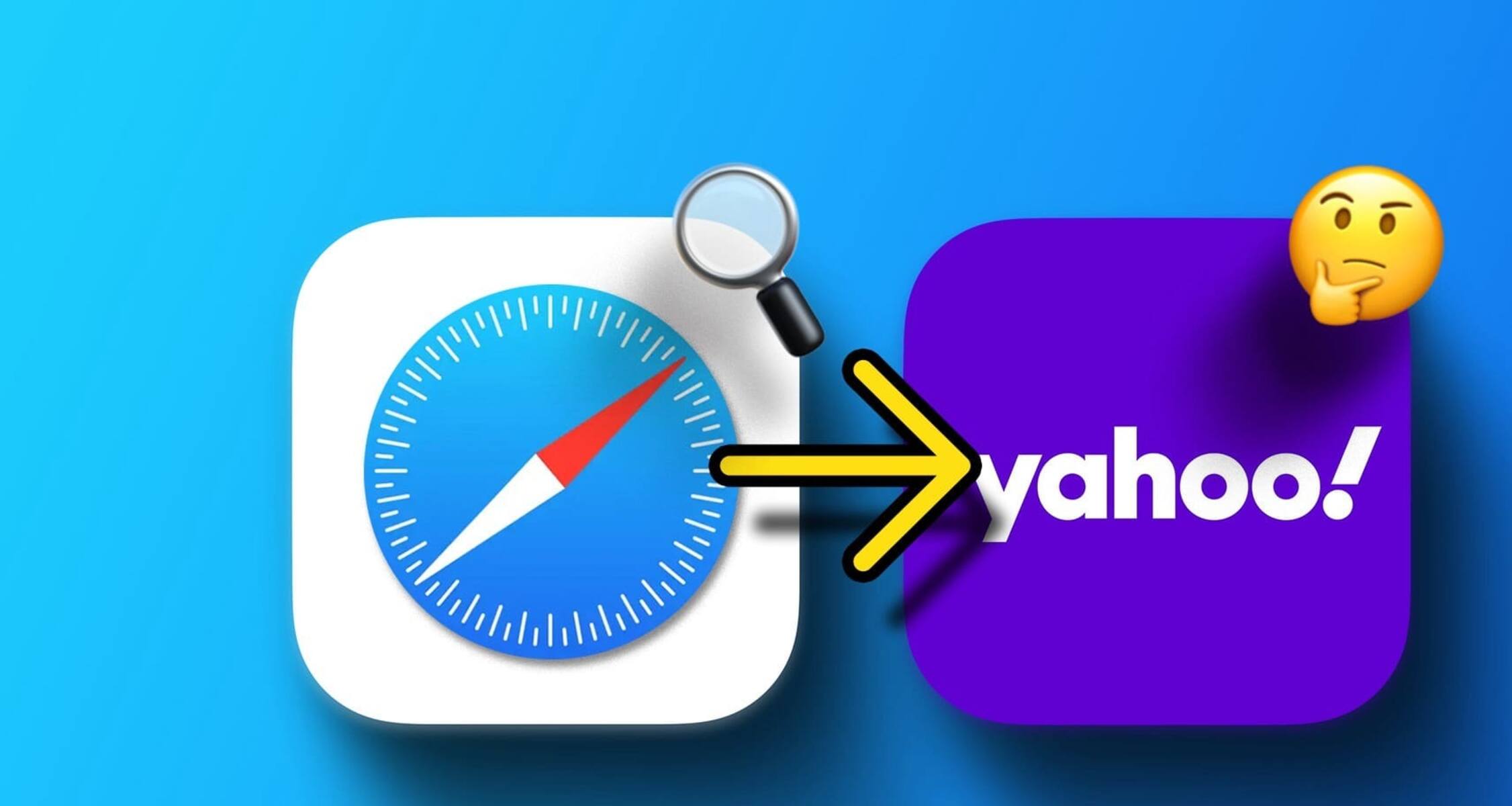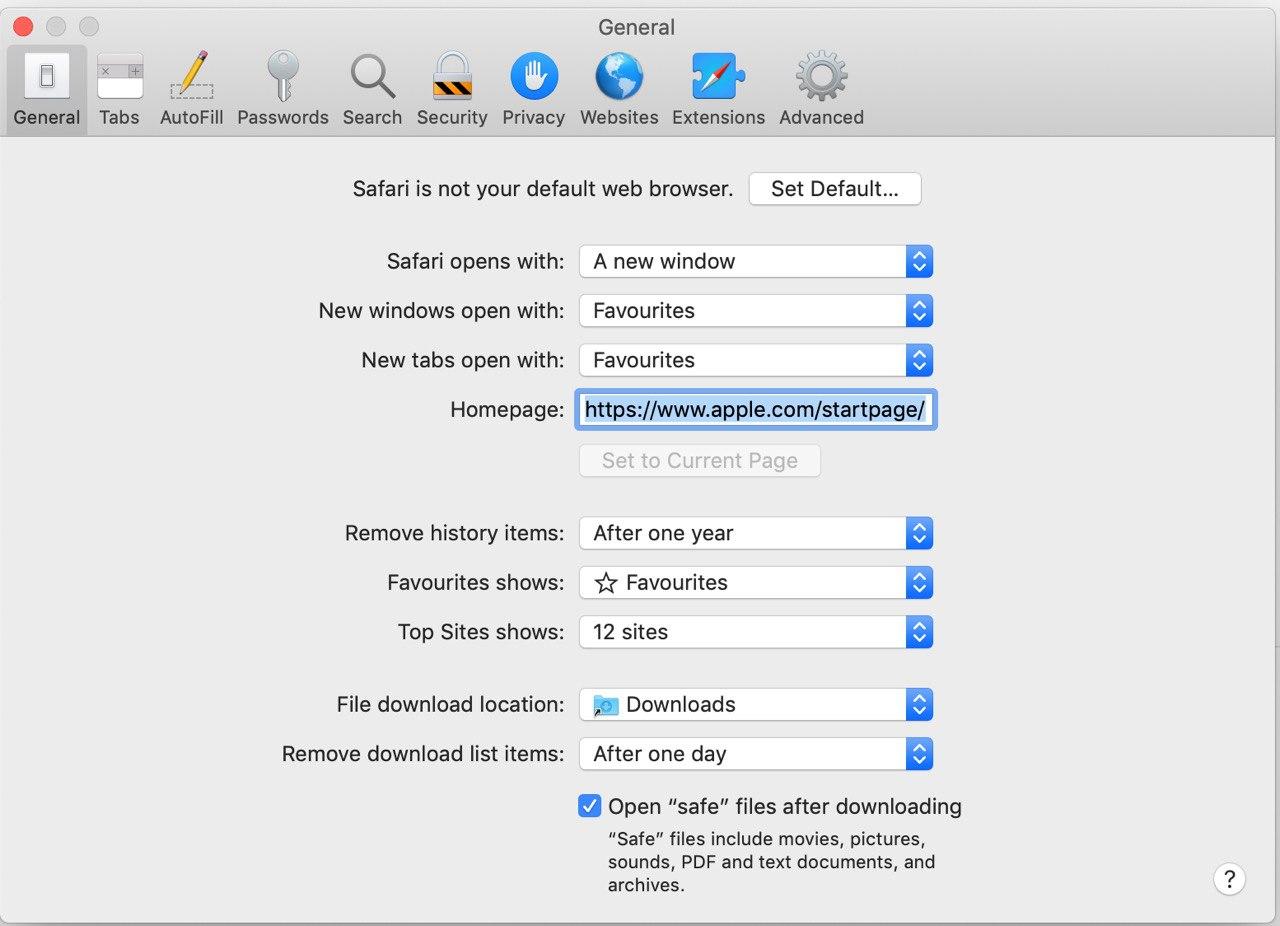Introduction
Safari, the widely used web browser developed by Apple, is known for its sleek interface, robust security features, and seamless integration with Apple devices. However, some users have encountered a perplexing issue where Safari unexpectedly redirects to Yahoo, the popular search engine and web services provider. This unexpected behavior can be frustrating and disruptive, especially when users have not intentionally set Yahoo as their default search engine or homepage.
The sudden redirection to Yahoo can leave users puzzled and seeking answers to why this is happening and how to resolve it. Understanding the underlying reasons for this redirection and learning how to prevent it can help users regain control of their browsing experience and ensure that Safari behaves as expected.
In the following sections, we will delve into the potential causes of Safari redirecting to Yahoo, explore the factors that may contribute to this behavior, and provide actionable steps to prevent and address this issue. By gaining insights into this perplexing phenomenon, users can empower themselves with the knowledge needed to navigate the digital landscape with confidence and ease.
What is Safari Redirect?
Safari redirect refers to the unexpected behavior where the Safari web browser automatically directs users to Yahoo, altering their intended browsing destinations. This redirection can manifest in various scenarios, such as when users attempt to perform a web search using the browser's address bar or when they launch Safari and find themselves directed to Yahoo's homepage instead of their default or previously visited site.
This phenomenon can be particularly perplexing for users who have not consciously chosen Yahoo as their default search engine or homepage. The sudden and unexplained redirection disrupts the expected browsing flow and can lead to frustration and confusion among Safari users.
The Safari redirect issue is not only disruptive but also raises concerns about the security and integrity of the browsing experience. Users may question whether their browser has been compromised or if there are underlying factors triggering this unexpected behavior.
Understanding the nature of Safari redirect is crucial for users seeking to regain control of their browsing experience. By unraveling the mechanisms behind this redirection, users can equip themselves with the knowledge needed to address the issue effectively and prevent future occurrences.
In the subsequent sections, we will explore the potential reasons for Safari redirecting to Yahoo, shedding light on the factors that may contribute to this behavior. By gaining insights into the underlying causes, users can take proactive measures to mitigate the impact of Safari redirect and ensure a seamless and secure browsing experience.
Possible Reasons for Safari Redirecting to Yahoo
-
Browser Hijacking: Safari redirecting to Yahoo could be indicative of browser hijacking, a malicious activity where unauthorized changes are made to the browser's settings without the user's consent. This can occur through the installation of adware or potentially unwanted programs (PUPs) that manipulate the browser's configuration to force redirection to specific websites, including Yahoo. These intrusive entities may alter the default search engine, homepage, or new tab settings, leading to the unwanted redirection behavior.
-
Unintentional Browser Settings Changes: In some cases, users may inadvertently modify their Safari settings, leading to the unexpected redirection to Yahoo. This can occur when users unknowingly install browser extensions or plugins that alter the browser's behavior, including redirecting searches and URLs to Yahoo. Additionally, unintentional changes to the default search engine or homepage settings within Safari can result in the persistent redirection to Yahoo's web services.
-
Malicious Extensions or Plugins: The presence of malicious or compromised browser extensions or plugins can trigger the Safari redirect to Yahoo. These unauthorized add-ons may exert control over the browser's behavior, causing it to override user preferences and forcibly redirect to Yahoo's search engine or homepage. Malicious extensions can infiltrate the browser through deceptive downloads, compromised websites, or bundled software installations, compromising the integrity of the browsing experience.
-
Search Engine Preferences: Safari's default search engine settings may have been altered, leading to the redirection to Yahoo. Users who inadvertently set Yahoo as their default search engine or failed to remove it as an alternative search provider may experience the browser redirecting their searches and URLs to Yahoo's search results page. This can occur due to oversight during the browser's initial setup or subsequent changes made to the search engine preferences.
-
DNS or Network Issues: Technical issues related to the Domain Name System (DNS) or network configurations can contribute to Safari redirecting to Yahoo. DNS hijacking, where the browser's attempts to resolve website addresses are intercepted and redirected to unauthorized servers, can lead to unexpected redirections. Similarly, network-related anomalies, such as proxy server configurations or unauthorized network redirections, can impact the browser's behavior and result in the redirection to Yahoo.
Understanding these potential reasons for Safari redirecting to Yahoo is essential for users seeking to address this issue effectively. By identifying the underlying factors contributing to the redirection behavior, users can take targeted measures to restore their browsing preferences and mitigate the impact of unwanted redirections.
How to Stop Safari from Redirecting to Yahoo
Addressing the issue of Safari redirecting to Yahoo requires a systematic approach to identify and mitigate the underlying factors contributing to this unexpected behavior. By implementing targeted strategies and leveraging the browser's settings and features, users can regain control of their browsing experience and prevent future occurrences of unwanted redirections. Here are actionable steps to stop Safari from redirecting to Yahoo:
-
Remove Suspicious Extensions and Plugins: Begin by reviewing and removing any suspicious or unauthorized extensions and plugins installed in Safari. Access the browser's extension or plugin management interface and disable or uninstall any add-ons that may be causing the unwanted redirection to Yahoo. By eliminating potentially malicious or compromised extensions, users can mitigate the risk of unauthorized browser behavior.
-
Reset Safari Settings: Resetting Safari to its default settings can help eliminate any unauthorized changes that may be contributing to the redirection issue. Navigate to the browser's settings or preferences menu and locate the option to reset Safari. This action will revert the browser to its original state, removing any altered search engine preferences, homepage settings, and other custom configurations that may be causing the redirection to Yahoo.
-
Clear Browsing Data and Cache: Clearing the browser's cache, cookies, and browsing history can help eliminate any stored data that might be influencing the redirection behavior. Access the browser's settings to find the option for clearing browsing data and select the relevant categories, such as cache and cookies, to remove stored information. This can help refresh the browser's state and prevent it from redirecting to Yahoo based on outdated or corrupted data.
-
Update and Secure Safari: Ensure that Safari is updated to the latest version to benefit from security patches and bug fixes that may address underlying vulnerabilities contributing to the redirection issue. Additionally, consider implementing robust security measures, such as enabling pop-up blockers, activating the built-in fraudulent website warning feature, and leveraging reputable antivirus or antimalware software to safeguard the browser against potential threats.
-
Check DNS and Network Configurations: Verify the DNS settings and network configurations to rule out potential technical issues that may be causing Safari to redirect to Yahoo. Ensure that the DNS settings are configured correctly and that the network connections are secure and free from unauthorized redirections. Addressing any anomalies in the DNS or network setup can help stabilize the browser's behavior and prevent unwanted redirections.
By following these proactive measures, users can take decisive steps to stop Safari from redirecting to Yahoo and restore their browsing experience to its intended state. These strategies empower users to address the underlying factors contributing to the redirection issue and fortify Safari against potential security risks and unauthorized alterations to its settings.
Conclusion
In conclusion, the unexpected redirection of Safari to Yahoo can disrupt the browsing experience and raise concerns about the security and integrity of the browser. By delving into the potential reasons for this redirection and exploring actionable strategies to address the issue, users can regain control of their browsing preferences and mitigate the impact of unwanted redirections.
The multifaceted nature of the Safari redirect issue underscores the importance of proactive measures to safeguard the browser against unauthorized alterations and potential security risks. From addressing browser hijacking and malicious extensions to resetting Safari settings and securing the browser against vulnerabilities, users can take decisive steps to prevent Safari from redirecting to Yahoo and ensure a seamless and secure browsing experience.
By understanding the underlying factors contributing to the redirection behavior, users can navigate the digital landscape with confidence and empower themselves to address unexpected browser anomalies effectively. The resilience of Safari as a leading web browser, coupled with users' proactive engagement in securing and optimizing their browsing environment, reinforces the foundation for a reliable and personalized web experience.
As users implement targeted strategies to mitigate the impact of Safari redirecting to Yahoo, they contribute to the ongoing evolution of browser security and user empowerment. By staying informed about potential browser vulnerabilities and taking proactive measures to address unexpected redirections, users play a pivotal role in shaping a resilient and secure browsing ecosystem.
In essence, the Safari redirect issue serves as a catalyst for users to deepen their understanding of browser security, settings management, and proactive measures to safeguard their digital experiences. By leveraging the insights and strategies outlined in this article, users can navigate the complexities of browser behavior with confidence, ensuring that Safari aligns with their browsing preferences and security expectations.
Ultimately, the journey to prevent Safari from redirecting to Yahoo is a testament to users' proactive engagement in shaping a secure and personalized browsing environment. As users apply targeted measures and stay informed about emerging browser security best practices, they contribute to a collective effort to fortify the digital landscape and elevate the browsing experience for all.

























